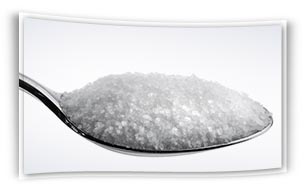
I’m concerned that my 12-year-old son is overweight, and because both my husband and I work (I get home at 4:30 p.m.), he spends a couple of hours at home before I get there. He wants me to stock up the fridge with some soft drinks and snacks, and I’m not sure what to do. What do you think of the “low-calorie” drinks—would they help him?
Your question highlights dilemmas facing modern parents. It’s often difficult to make ends meet without both parents working, and in many regions extracurricular school activities have been greatly reduced. It can often be a cause for concern when children arrive home before the parents do.
The low-calorie drink idea, however, is one that is fraught with complexity. As we have pointed out in this column before, sweetness without accompanying caloric content seems to stimulate cravings for more food and, in some studies, has shown a counterproductive weight gain. Though concerns expressed about cancer-promoting effects of the half-dozen sweeteners available on the market have been largely dismissed, the sweetening of foodstuffs has reached unprecedented proportions.
 Many foods are sweetened with sucrose (table sugar) or the chemically similar high-fructose corn syrup. Such sweeteners provide empty calories in that they are not accompanied by fiber or phytochemicals. Persons consuming increased quantities of these sugars gain weight and have increased blood pressure and inflammatory markers compared to a control group given artificial sweeteners, but this doesn’t mean the latter are good. The fixation on sweetness can alter taste preferences, and persons so biased find unsweetened foods such as vegetables and legumes unattractive.
Many foods are sweetened with sucrose (table sugar) or the chemically similar high-fructose corn syrup. Such sweeteners provide empty calories in that they are not accompanied by fiber or phytochemicals. Persons consuming increased quantities of these sugars gain weight and have increased blood pressure and inflammatory markers compared to a control group given artificial sweeteners, but this doesn’t mean the latter are good. The fixation on sweetness can alter taste preferences, and persons so biased find unsweetened foods such as vegetables and legumes unattractive.
An eight-ounce apple will contain vitamins, minerals, phytochemicals, and fiber, but fewer calories than two ounces of bread.
An interesting study reported that rats given a mutually exclusive choice between intravenous cocaine or oral saccharine chose the sweetener, even when there had been prior cocaine exposure.This suggests that sweetness can become an intense craving, surpassing the addictive pleasure of cocaine. If indeed this is the case, the population is being exposed to a massive uncontrolled experiment, because sweeteners of both types are ubiquitous. In one study the consumption of three diet drinks per day was associated with a doubling of the risk of overweight and obesity.
In yet another major study diet drinks were associated with a 67 percent greater risk of type 2 diabetes, and a 36 percent increased risk of the metabolic syndrome. Whether obese people drink diet drinks or vice versa needs to be examined to unravel the relationships.
So we suggest you load the fridge with fruit, apples, peaches, plums, carrot sticks, and so forth, and avoid the diet drinks. We might recommend a soy milk drink, but these are also laden with sugar. A low-fat skim milk drink might satisfy both thirst and hunger, and would provide calcium as well as a multitude of other nutrients.
We also suggest that you actively explore some after-school interests for your son. These might include music lessons; art classes; or baseball, tennis, golf, or swimming classes that could occupy him on several of the school days. Not only would they benefit his health through activity, but also they would provide additional interests.
You could also give your son some chores, such as cutting the grass, for which he could earn extra pocket money. Lying around like a couch potato is a formula for obesity.
Sitting down with your son and expressing your love and concern for him might help him understand and cooperate. This problem is not yours alone, but one affecting millions globally.
_______
Send your questions to Ask the Doctors, Adventist Review, 12501 Old Columbia Pike, Silver Spring, Maryland 20904. Or e-mail them to [email protected]. While this column is provided as a service to our readers, Drs. Landless and Handysides unfortunately cannot enter into personal and private communication with our readers. We recommend you consult with your personal physician on all matters of your health.
_________
Allan R. Handysides, a board-certified gynecologist, is the director of the Health Ministries department of the General Conference. Peter N. Landless, a board-certified nuclear cardiologist, is an associate director of the Health Ministries department of the General Conference. This article was published June 28, 2012.